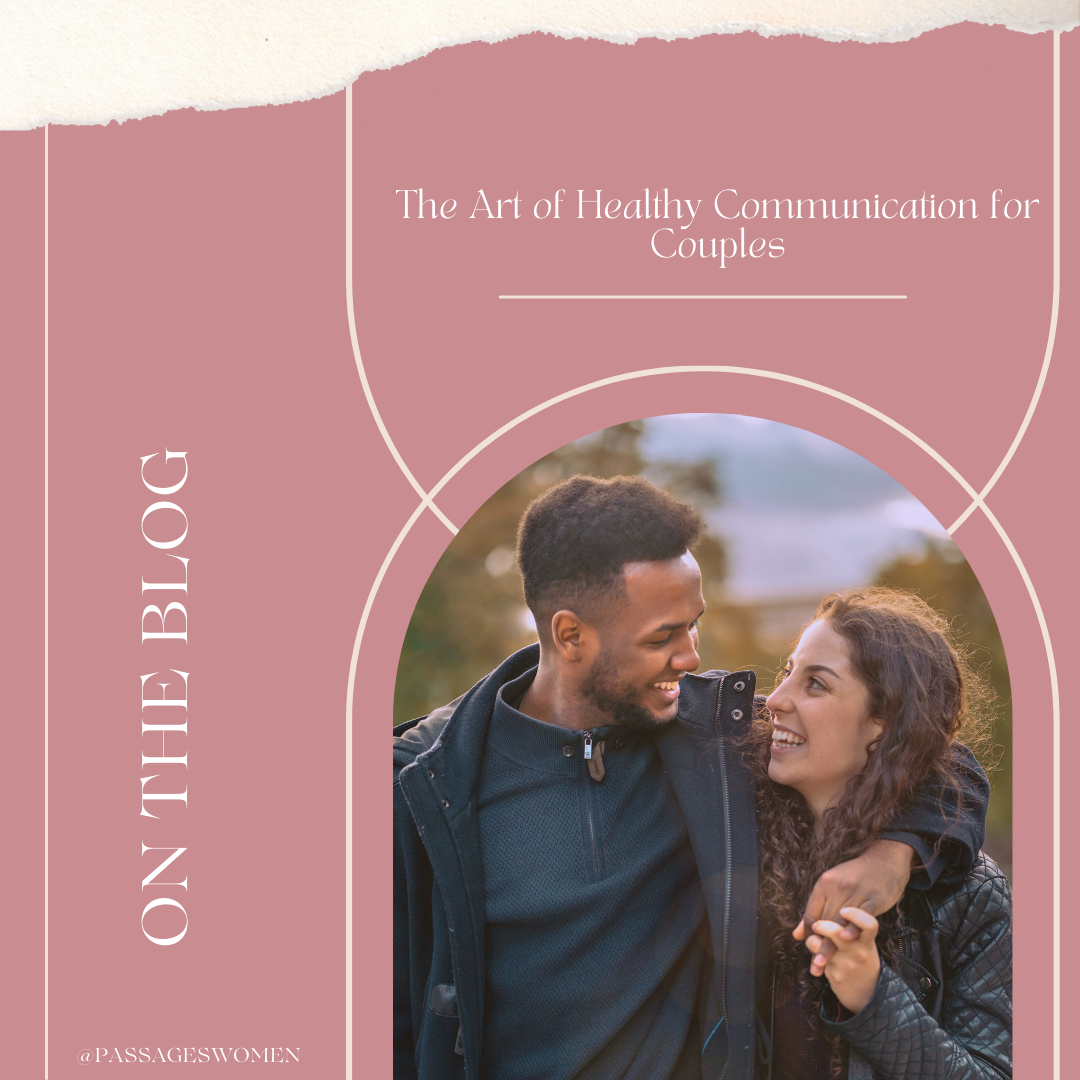The Art of Healthy Communication for Couples
Communication is the heartbeat of our relationships, acting as the bridge that links us together, enabling understanding, closeness, and mutual respect. As therapists, we at Passages are fortunate to see firsthand how powerful good communication can be in fostering healthy relationships. In this blog, we’ll share some insights and strategies from a therapeutic lens to help you enhance your communication skills and fortify the bonds of your relationships.
1. Embrace Active Listening
True communication starts with listening—not just hearing, but actively engaging with what the other person is sharing. Try to fully immerse yourself in the conversation, resist the urge to interrupt, and hold off on crafting your response until the person has finished speaking. Reflect on what you've heard and validate the other's feelings and perspectives. This kind of active listening builds trust and lays the groundwork for open and honest dialogue.
2. Adopt "I" Statements
"I" statements are a game-changer in expressing your feelings, thoughts, and needs without pointing fingers. Instead of saying, "You never listen to me," you could say, "I feel overlooked when I don’t feel heard." This approach fosters personal responsibility and paves the way for positive, constructive conversations, focusing on your own experiences rather than assigning blame.
3. Cultivate Assertive Communication
Assertiveness is about being clear and direct with your feelings, thoughts, and boundaries, yet doing so with respect. Steer clear of passive or aggressive communication, as these can lead to resentment or conflict. Be confident in your self-expression while also valuing the other person’s viewpoint. Assertive communication is key to promoting self-respect, self-esteem, and clear boundaries in your relationships.
4. Foster Emotional Safety
For open and truthful communication, emotional safety is crucial. Strive to create an environment where everyone feels understood, valued, and accepted, free from judgment. Sidestep behaviors that undermine trust and intimacy, like criticism or defensiveness. Instead, practice empathy, validation, and compassion to nurture emotional safety and deepen connections.
5. Navigate Conflict Resolution
Disagreements are inevitable in any relationship, but how we handle them is what really counts. Face conflicts with a mindset geared towards understanding the other’s perspective. Utilize active listening, "I" statements, and assertive communication to convey your needs and work towards solutions that benefit everyone. If tensions rise, take a break and revisit the discussion when both sides are calm and ready to engage constructively.
6. Encourage a Growth Mindset
View communication hurdles as chances for growth and improvement in your relationships. Welcome feedback and constructive criticism as opportunities to enhance communication and strengthen bonds. Foster a growth mindset that prioritizes progress over perfection and values vulnerability as a route to genuine intimacy and authenticity.
Healthy communication is the foundation of strong relationships, enriching our interactions with understanding, empathy, and respect. By embracing active listening, utilizing "I" statements, using assertive communication, promoting emotional safety, navigating conflict resolution, and encouraging a growth mindset, we can build relationships that are not only thriving but also filled with trust, authenticity, and mutual support.
Incorporating these communication strategies into your daily interactions can profoundly enhance the quality of your relationships. At Passages Women, we specialize in couples therapy in Setauket and Sayville, NY. Take the first step towards cultivating stronger connections. Call us at (631) 941-1200.
To learn more about Judy or to schedule a consultation, click on the link below!

